#language: croatian
Explore tagged Tumblr posts
Text
there's this word in Serbian 'vukojebina' which literally means 'the place where wolves go to fuck' but they use it to mean 'in the middle of nowhere'. it sure does the job well, but the visual stayed with me longer than I would have liked it to.
#linguistics#language#langblr#serbian#don't know if it's also used in Croatian Bosnian or Montenegrin
300 notes
·
View notes
Text
croatian skam is officially coming this fall 🇭🇷
this is the best year of my life !!!
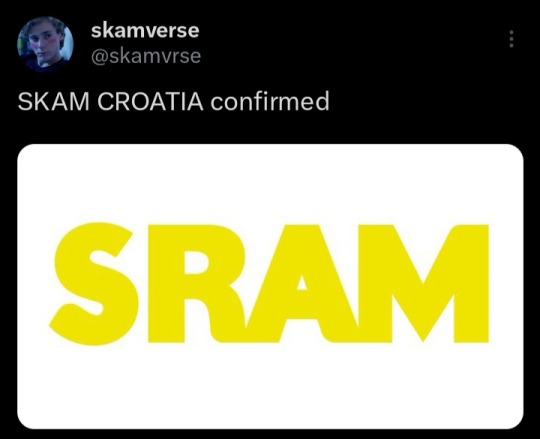

#skam#skam norway#druck#skam españa#skam france#skam austin#skam nl#wtfock#skam italia#skam croatia#sram#for the people asking in the reblogs yes sram means shame (skam) in croatian i get it's funny to some of you but it's just our language 😭
312 notes
·
View notes
Text
[ENG SUB] JokerOutSubs x Backstage z Jano Morelj collab: The Voices of Two Generations (14.10.2024)

Bojan and Tomi Meglič’s interview with Jana Morelj is now up on her YouTube channel, ‘Backstage z Jano Morelj’, with captions in English, Serbian, Croatian, Italian, Finnish, Hungarian, Japanese, Polish and French by JokerOutSubs!
Massive thank you to Jana for collaborating with us on this one so we could make sure the fanbase could watch it as soon as possible - please go and check out/follow her on Instagram and Facebook!
And a huge thank you to every member of JokerOutSubs who worked on this- keep an eye out, our amazing translators will be adding even more languages SOON!
Watch the full video with subtitles here!
Full credits under the cut:
Slovenian and English captions:
Transcript by: Anja (@kurooscoffee), Drumbeat, Katja (TT katysmusic77), Maša (@ilikethingsandsuch), Smarty (@chaosofsmarty), Sabina (X coffeebiscuitxx), Tara
Translation by: Anja, Drumbeat, Katja, Smarty, Sabina, Tara
Review by: Anja, Tara
Proofread by: Anastasia, Grace (IG gboleyn123), Shau (@flowerlotus8), Ry (X klámstrákur)
Subtitles by: Anja, Drumbeat, Iris, Tara
Other languages:
Serbian and Croatian: Irena (IG irenalemajic), Marija (IG marija_rocen), Mia (IG mia_djordjevic_ig), Moon (@moonlvster)
Finnish: Katja (IG katbatx), Niina (IG niini5_93), Saara (IG s_aaaraa)
Hungarian: Anna (X ddrflctns), Tami (X brnbergeron)
Italian: Irena (IG irenalemajic), Val (@vesdagrem)
Japanese: Michael (X mic_rr_1203), Sae (X sae_w)
Polish: Aneta (IG z_aneta_z), Klaudia (IG flowers.s08), Ola (IG a.oki_), Zielonaherbata (IG zielonaherbata_)
French: Magali (@yoda-bor) and Mappyon (X UchuuRaion)
Video graphics: Val
#joker out#bojan cvjetićanin#bojan cvjeticanin#tomi meglič#siddharta#jos: collaboration#year: 2024#jo: bojan solo#og language: slovenian#translated language: serbian#translated language: croatian#translated language: italian#translated language: hungarian#translated language: japanese#source: backstage z jano#translated language: finnish#jokeroutsubs x backstage z jano#type: video#translated language: polish#translated language: french
86 notes
·
View notes
Text
another mena language post - i wanted to talk about judeo-arabic and clarify a little bit about what "judeo-arabic" means
the basics, for those of you who don't know: arabic, being a language that was spread over a large part of the world and has since evolved into many different forms, has many different things that differentiate certain dialects. languages/dialects can be influenced by languages speakers' ancestors spoke before, by the social structure of where speakers live, by languages they come into contact with, and by gradual evolution in pronunciation. (many letters like evolving into ones that are easier to pronounce - this is why arabic has no "p" sound, it eventually evolved into "f" or "b". the same thing happened in germanic languages to some extent, which is why we say "father" in english and "vader" in german while in romance languages it's some variation of "padre" or "père".) many arabic dialects in particular possess different substratum (obvious, traceable influence from languages people spoke in before shifting to the new one).
arabic, being a language that was spread over a large part of the world and has since evolved into many different forms, has many different regional dialects which are different for the reasons i described in the above paragraph. even though there's modern standard arabic (which is the subject of its own post), people speak regional dialects in real life. on top of that, there's a variety of social influences on different types of arabic, such as whether someone's living in the city or in the country, whether someone's sedentary or a bedouin, and in some cases religion.
in the middle east, religion was historically:
not seen as a personal choice, but as something you're born into and a group you're a part of, kind of like ethnicity;
not generally something governments actively wanted everyone to share one of at the penalty of ostracization due to sticking to your group being the more livable way of life in the area, or later, the benefits of things like imposing extra taxes on people who weren't the "correct" religion/branch (this is far from being a "muslim thing" btw, it's been in the area for a while now, i mean look at the assyrians);
an influential factor in where you lived and who you were more likely to interact with because of those two things. (for example, it wasn't uncommon for most of the people living in one village in the countryside to share one religion/branch of a religion. if your village converted, you converted, too. if they didn't, you didn't, either.)
this means that the influence of religion in different types of arabic is due to people of different religions living in or coming from different places, and who people talked to most often.
for example, in bahrain, most sedentary shia bahrainis' ancestors have lived on the island for a very long time, while most sedentary sunni bahrainis' ancestors immigrated from other places in the gulf and iran in the 18th century. therefore, while they've all interacted and shared different aspects of their dialects including loanwords, there are two "types" of bahraini arabic considered distinctive to sunni and shia bahrainis respectively, regardless of how long ago their ancestors got there. despite the differences being marked by the religion of the speakers, they have nothing to do with religion or contact/lack thereof between bahraini sunni and shia, but with the factors affecting the different dialects i mentioned in the first paragraph which influenced either group.
a similar phenomenon to this in english is class differences in accent in england. nothing in received pronunciation is actually something only rich people can say or unintelligible to poor people, it developed by the class differences influencing where rich and poor english people lived and the different pronunciation/linguistic histories in those places, as well with different classes keeping more to themselves.
the influence of religion on arabic dialects isn't universal and nowhere near as intense as it is with aramaic. some places, especially more cosmopolitan or densely populated places, are less likely to have very noticeable differences or any differences at all. in addition, certain variations of a dialects that may've been influenced by religion in some way (as well as urban dialects) may be standardized through tv/movies/social media or through generally being seen as more "prestigious", making more people who wouldn't have spoken them otherwise more likely to pick it up. (this is why so many arabic speakers can understand egyptian arabic - cairo is like the hollywood of the arabic-speaking world.) this is the case with many if not most countries' official and regional languages/dialects nowadays.
this phenomenon is what "judeo-arabic" refers to generally. like many other jewish diaspora languages, the "jewish" aspect is that it was a specific thing jewish people did to different types of arabic, not that it was isolated, possessed a large enough amount of certain loanwords (though some varieties did have them), or is unintelligible to non-jews. people were generally aware of differences where they existed and navigated between them. (for example, baghdadi jews may've switched to the more prestigious muslim baghdadi dialect when in public.) if you know arabic, listen to this guy speak, you should be able to understand him just fine.
judeo-arabic also often used the hebrew alphabet and some may have been influenced by hebrew syntax and grammar in their spelling. you can also see the use of script for religious identification in persian and urdu using the arabic script, and in english using the latin alphabet. in general, influences of hebrew/aramaic on different types of judeo-arabic aren't consistent. you can read more about that here.
"judeo-arabic" isn't a universal that definitely happened in every arabic-speaking part of the world that had jews in it to the same degrees, but it did definitely exist. some examples:
after the siege of baghdad in 1258, where mongols killed all muslim baghdadis and spared baghdadis of other religions, bedouins from the south gradually resettled the city. this means that the "standard" sedentary dialect in the south is notably bedouin influenced, while dialects in the north are more notably influenced by eastern aramaic. christians and (when they lived there) jews in baghdad have dialects closer to what’s up north. within those, there's specific loans and quirks marking the differences between "christian" and "jewish".
yemenite jews faced some of the most persistent antisemitic persecution in the middle east, so yemeni jewish arabic was more of a city thing and often in the form of passwords/codewords to keep jews safe. jews were usually a lot safer and better-regarded in the countryside, so jewish yemeni arabic was much less of a thing there, and when it was, it was less "serious".
due to the long history of maghrebi immigration to palestine, there's attestation of maghrebi influences in arabic spoken by some palestinian jews with that origin. this was also a thing in cairo to some extent.
(i'd link sources, but most of them are in hebrew, i guess you'll have to trust me on this one??)
still, the phrase "judeo-arabic" is often used with the implication that it was one all encompassing thing (which it wasn't, as you can see), or that jews everywhere had it in some way. many jews who spoke some version of arabic special to their mostly-jewish locale may not have registered it as a specifically "jewish" version of arabic (though they did more often than not). the truth is that research about anything related to middle eastern and north african jews is often sloppy, nonexistent, and often motivated by the desire of the researcher to prove something about israel's colonization of palestine (on either "side" of the issue). this is not me being a centrist about the colonization of palestine, this is me stating that academia is often (even usually) influenced by factors that aren't getting the best and most accurate information about something. i don't think we're going to get anything really "objective" on arabic spoken by jews in that regard for a long while.
for comparison's sake: yiddish is considered a separate language from german due to 19th century yiddishists' efforts to "evolve" yiddish from dialect to language (yiddish-speaking jews were said to speak "corrupted german" historically; on that note sephardim were also said to speak "corrupted spanish"). this was at a time when ethnic nationalism was en vogue in europe and declaring a national language meant declaring your status as a sovereign nation (both metaphorically and literally). for yiddishists to assert that they were speaking a language and not a dialect that intrinsically tied them to germans was to reject the discrimination that they were facing. (besides, german/austrian/swiss jews weren't speaking yiddish (leaving it with the connotation of being the language of those icky ostjuden), yiddish-speaking jews had practically zero other ties to germany/austria/switzerland, and yiddish-speaking jews (let alone the yiddishists) were almost entirely east of germany/austria/switzerland, so it's not like they were pulling this out of their ass.)
whether a jewish person of arabic-speaking descent calls it "arabic", "judeo-arabic", or something like "moroccan"/"syrian"/etc depends on who you're talking to, where they're from (both diaspora origins and today), how old they are, and what they think about zionism. despite "judeo-arabic" being what it's called in academia, on the ground, there's no real strong consensus either way because the social circumstances arabic-speaking jews lived in didn't drive them to form a movement similar to yiddishists. (not because there was no discrimination, but because the political/social/linguistic circumstances were different.) the occupation since made the subject of middle eastern jews’ relation to the middle east a contentious topic considering the political and personal weight behind certain cultural identifiers. the term "judeo-arabic" is modern in comparison - whether it's a distinction dredged up by zionist academics to create separations that didn't really exist or a generally accurate term for a specific linguistic phenomenon is a decision i'll leave you to make.
#jewish#mizrahi#languageposting#my posts#my own opinion is it doesn’t matter what you label a language because it doesn’t erase its history#what we think of as a ''language'' or ''dialect'' is arbitrary#technically hebrew arabic and aramaic are all dialects of proto-semitic#but it’s a good general idea to listen to speakers to know why someone may think of it in the way that they do#like yeah i do think political circumstances cause bosnians/serbians/croatians to label the language they speak as separate things despite#them all speaking one thing. but if a croatian guy tells me he speaks croatian and it has nothing to do with bosnian or serbian i won’t be#like ‘’well actually it’s a dialect continuum’’ or ‘’you poor thing manipulated by nationalist propaganda’’#ill just smile and nod and move on#he has a god given right to see the language he uses every day however he wants#even if i came to my opinion through research and the concensus of other bosnians/serbs/croats it means nothing in comparison
147 notes
·
View notes
Text
Using my powers (A2 level czech) for evil (eavesdropping on Czechs at the beach in Croatia)
504 notes
·
View notes
Text
Hey Croatian and Czech friends, i just want to talk





80 notes
·
View notes
Text
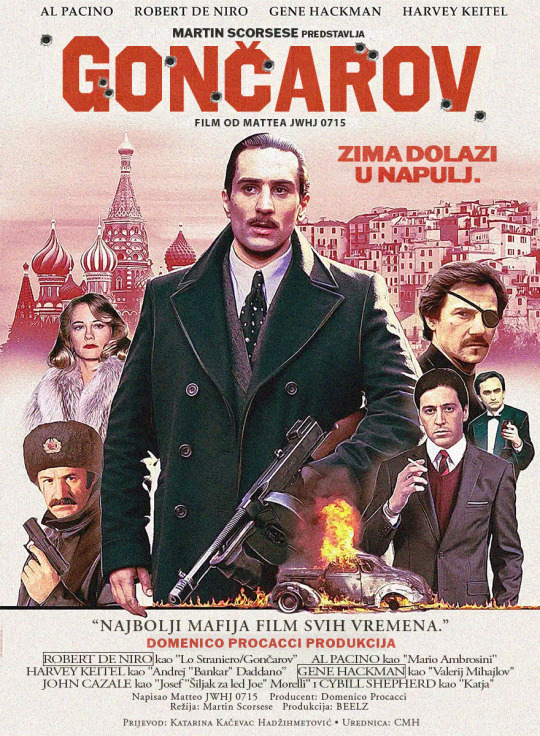

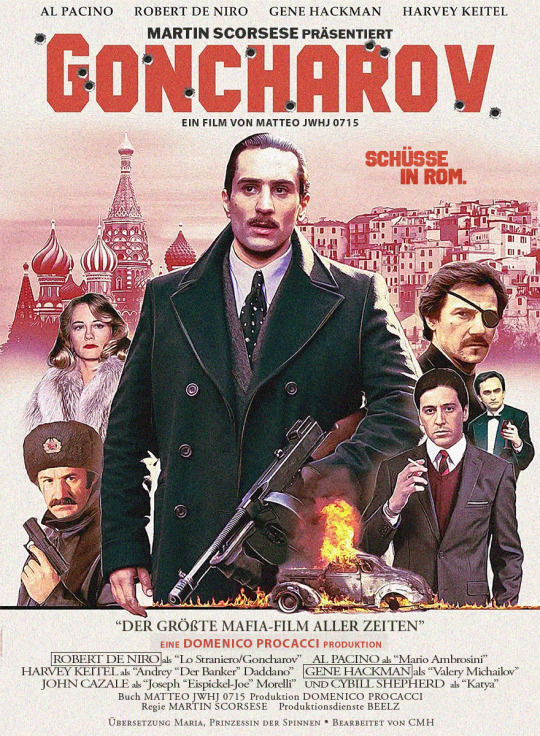
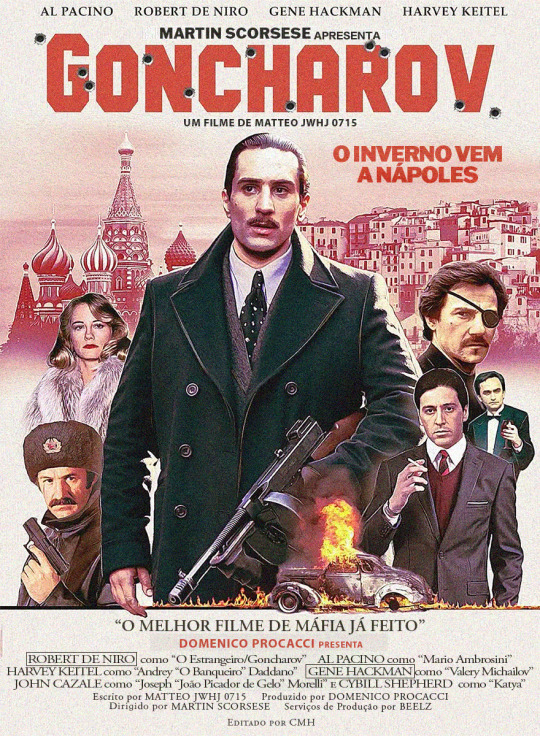

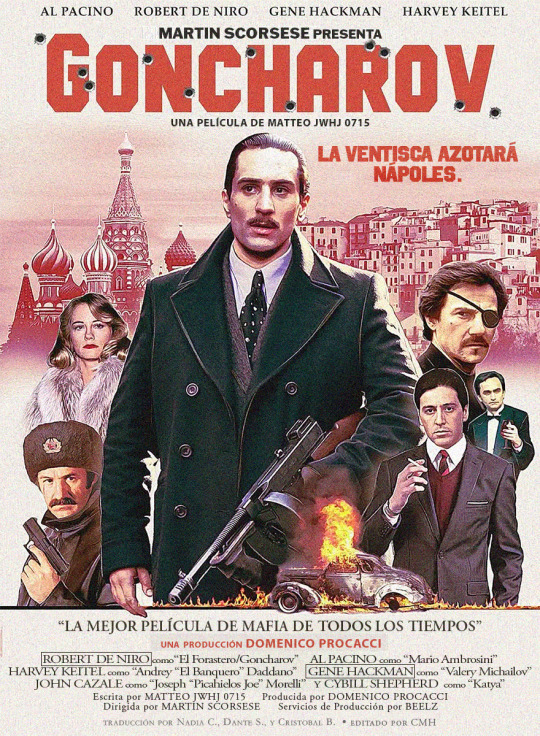
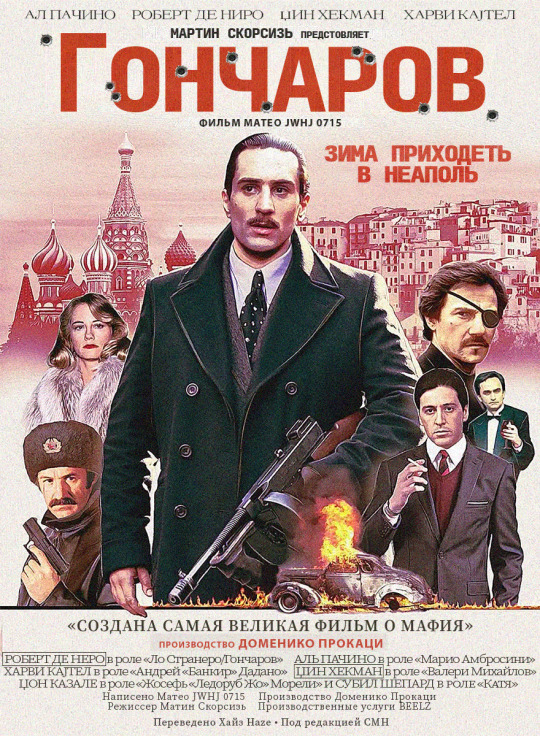
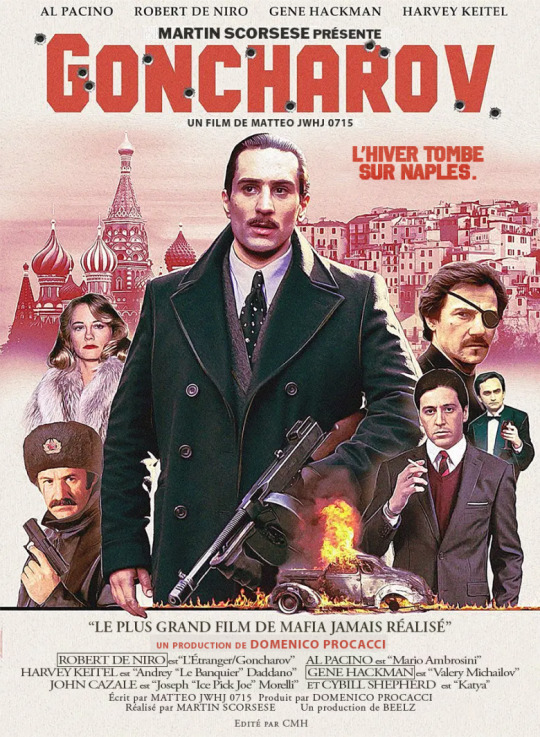
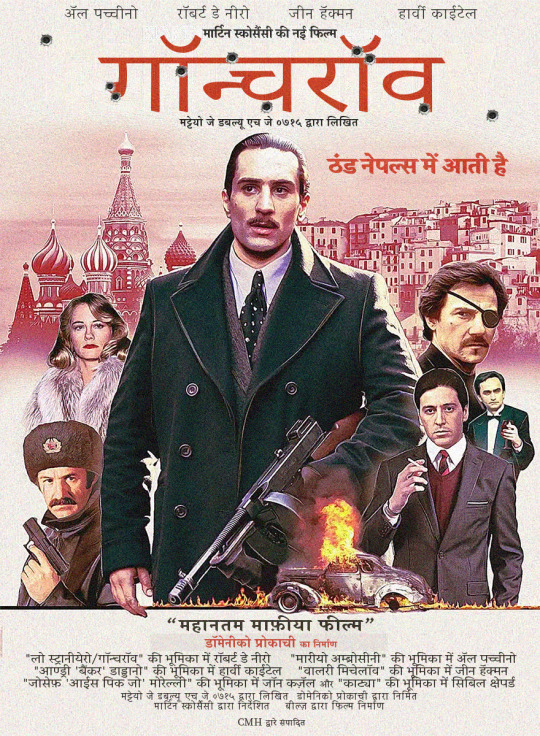
Goncharov (1973) International Posters
Translation Credits Serbo-Croatian (Croatian/Bosnian) - Katarina Kačevac Hadžihmetović Serbo-Croatian (Serbian/Montenegrin) - Katarina Kačevac Hadžihmetović Chinese (Traditional) - CMH (@honest-studies) Spanish - Nadia C., Dante S., Cristobal B. French - Anonymous Hindi - Anonymous Russian - Haze German - Prinzessin der Spinnen Portuguese (Brazilian) - Anonymous
Original poster design credits to @beelzeebub, Photoshop editing work by me.
#unreality#translation#goncharov#gonchposting#langblr#foreign language#poster#international#goncharov 1973#katya#shoutout to the goncharov 1973 lore discord server#beelzeebub#mafia#cult classic#serbo-croatian#chinese#spanish#french#hindi#russian#german#edit: currently working w translators to fix russian translation :)
667 notes
·
View notes
Text
Different orthography among Slavic languages
English: I’m not laughing Ukrainian: не сміюся (ne smijusja) Slovak: nesmejem sa Croatian: ne smijem se
East Slavic languages write the reflexive as a suffix.
Czech and Slovak write the negative as a prefix.
Polish and the South Slavic languages write both the negative and the reflexive as particles separate from the verb.
210 notes
·
View notes
Note
does mello teach matt any croatian or german,, or other languages he speaks?
Mello and Matt both lerned German and Russian at Wammy's (Mello probably also took French because he's an overachiever and Near took it as a first foreign language and he needs to trump that little brat >:((( ).
Matt picks up some Croatian from Mello as he mutters it a lot under his breath or straight up yells it at people. He sometimes asks what certain phrases mean but he maps most of it by context in his head.
But yeah, I think they have a little heated discussion at Wammy's as to where the hell the difference between the Croatian č, ć, dž, đ, š, ž is - that's all the same sound??? And Mello gets really agitated trying to get the right pronounciation out of Matt "No it's CH not SH don't you hear the difference?? Come on, try again, what's this one?" "Sh :)" "OH FOR FUCKS SAKE, MATT, IT'S NOT THAT DIFFICULT"
Matt's just trying to annoy Mello as much as possible at this point.
21 notes
·
View notes
Photo
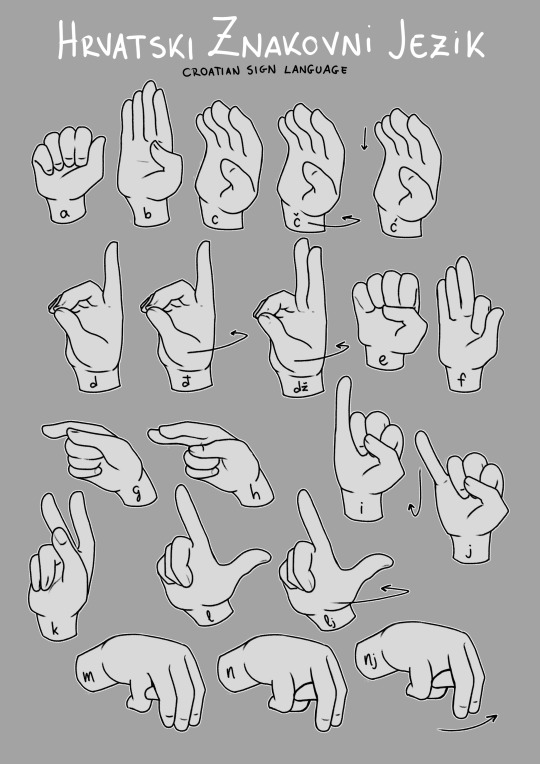
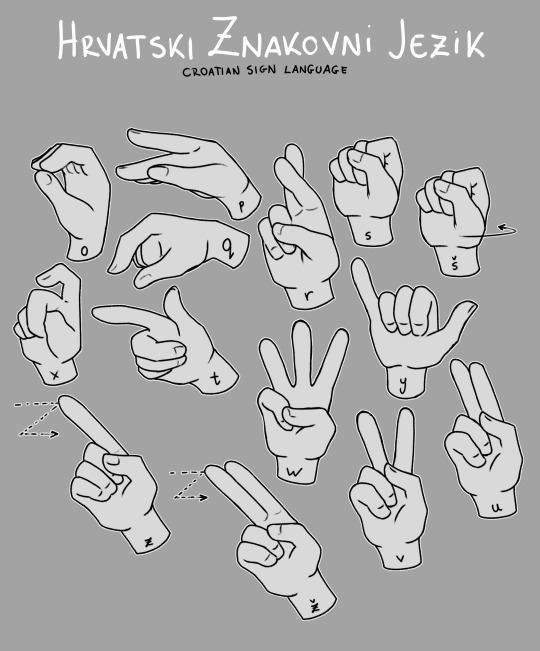
Croatian Sign Language! / Hrvatski Znakovni Jezik!
I drew this a while ago, because the resolution of the original print - only one I was able to find online - wasn’t all that great. I’m not too sure about it’s accuracy (if people would prefer I take it down, I will)
In the print this was written as a one-hand alphabet - however, since then I’ve come across better resources - like Spread the Sign so I’m putting these in my sketch/process tumblr as a sort of look into the past.
I would like to redo or update this at some point.
It is now also available in my Ko-Fi Shop!
.
COMMISSIONS - KO-FI - CARRD - WEBSITE - REDBUBBLE SHOP - TWITTER - INSTAGRAM - YOUTUBE
.
#croatian sign language#hrvatski znakovni jezik#hzj#sign language#digital art#hands#art process#croatian sign#croatian#hrvatski
212 notes
·
View notes
Text

Thursday, September 19
I started my bachelor's degree in Bosnian/Croatian/Montenegrian/Serbian (BCMS) this week.
To be exact, it's called in French a Licence LLCER (Langues, Littératures et Civilisations Étrangères et Régionales) BCMS (Bosniaque Croate Monténégrin Serbe).
This program is taking place online which is a great for people working full-time like me.
I browsed the different courses that I'll be taking this semester: linguistics and grammar, grammatical exercises, translation, written and oral expression, literature, history...
Today, I mostly worked on reviewing A2 vocabulary/grammar. I am joining the B1 level but first I want to make sure that I am starting with a solid (grammatical) foundation.
#theforeverlearner#slavistic#bcms#studyblr#study#learning#language study#langblr#language#literature#linguistics#academia#licence llcer#licence#bosnian#croatian#serbian
9 notes
·
View notes
Text
today my little patient who had an appointment for fixing a small cavity on his baby tooth sat on the chair looked me straight in the eye and said: that one tooth you wanted to fix..yeah i pulled it out
19 notes
·
View notes
Text
[ENG SUB] Joker Out on 'IN magazin', Croatian Nova TV (01.11.2024)
Joker Out answer a bunch of rapid fire questions as well as talking a bit about life in London.
Note for the trailer:
¹Bojan's answer is a mix of the two words.
Transcript by IG marija_rocen, translation and review by @moonlvster, IG marija_rocen, IG irenalemajic and IG mia_djordjevic_ig, proofread by IG Gboleyn123, subtitles by IG marija_rocen.
Also with:
🇮🇹 Italian subtitles by @vesdagrem
Full video on our YouTube!
youtube
#joker out#jokeroutsubs#bojan cvjetićanin#bojan cvjeticanin#jan peteh#nace jordan#kris guštin#kris gustin#jure macek#jure maček#Youtube#year: 2024#source: nova tv#og language: croatian#jo: all members#type: video
70 notes
·
View notes
Note
Your polish gardener Hank 🤝 my croatian farmer Hank
The power of slavic Hanks doing agriculture.

I just know he'd kill for his peonies
#croatia mention!!#would love to see croatian hank#madness combat#asks#fun fact i was. very close to making him russian#(a language im much more comfortable writing in)#but felt polish just fit him better
20 notes
·
View notes
Text
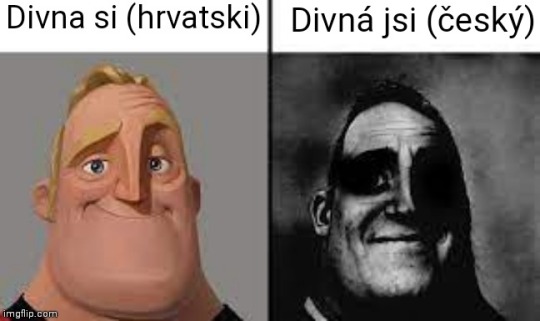
Fuck the Tower of Babel, whoever was in charge of creating czech and croatian words did some messed up shit.
1K notes
·
View notes
Text

All the comments here are talking ab "guys chill it's obviously a touristy area it's fine" oh you guys do not actually see foreign countries as Real Countries with Real People living there do you.
#not italian but i HATE when i sit in a cafe in my own hometown and have to hear ''sorry i don't speak croatian'' um? you work here.#in an uslužna djelatnost. and you can't speak the language?#also remember that even among the young population italians don't really Know foreign languages and yes english included#lingua franca it may be but the italians simply do not care.
15 notes
·
View notes